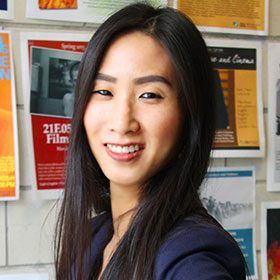
Heather Ruth Lee
NYU Shanghai
Biography
Heather R. Lee is an Assistant Professor of History at NYU Shanghai. She studies the transnational flows of people and capital between North America and Asia during the nineteenth and twentieth centuries. She focuses on legal immigration status—the bright line separating citizens from both documented and undocumented migrants—to uncover the experiences of Asians, who faced severe forms of immigration control. Her work contributes to our knowledge of migration patterns and economic integration of migrant workers in host nations.
「 The Chinese Banquet: Chinese Immigrants and the Brokering of Power in Turn of the Century New York 」
This paper explains how Chinese laborers created restaurants at a crossroad in American history. Thousands of unemployed Chinese scrambled for new livelihoods after the Union and Central Pacific railroad tracks joined at Promontory Summit, Utah on May 10, 1869. Thousands traveled eastward and opened laundries. The arrival of rugged manual laborers from Western frontiers transformed New York’s Chinese community, skewing it poor, uneducated, rural, and, most notably, male. Recent setters established protective fraternal associations, which, in the uncharted territory of New York, vied with one another for dominance. Groups competed for membership by widening their benefits, including opening canteens. This paper focuses on the New York based On Leong bent on raising the concerns of Chinese workingmen above monarchists and reformists on China’s American frontier. Its charismatic leader, Thomas Ling Lee, raised the ante quickly, establishing inordinately lavish restaurants to attract allegiance and intimidate opponents. Lee, a savvy politician, brokered relationships with Tammany, the urban political machine running lower Manhattan. This web of relationships allowed Lee to monopolize the economic and political resources of Chinatown. He faced fierce competition, but his organization endured, and the restaurant remains one of his enduring legacies. He molded Chinese dining during his tenure into a homosocial, and at times cross-cultural, activity.



